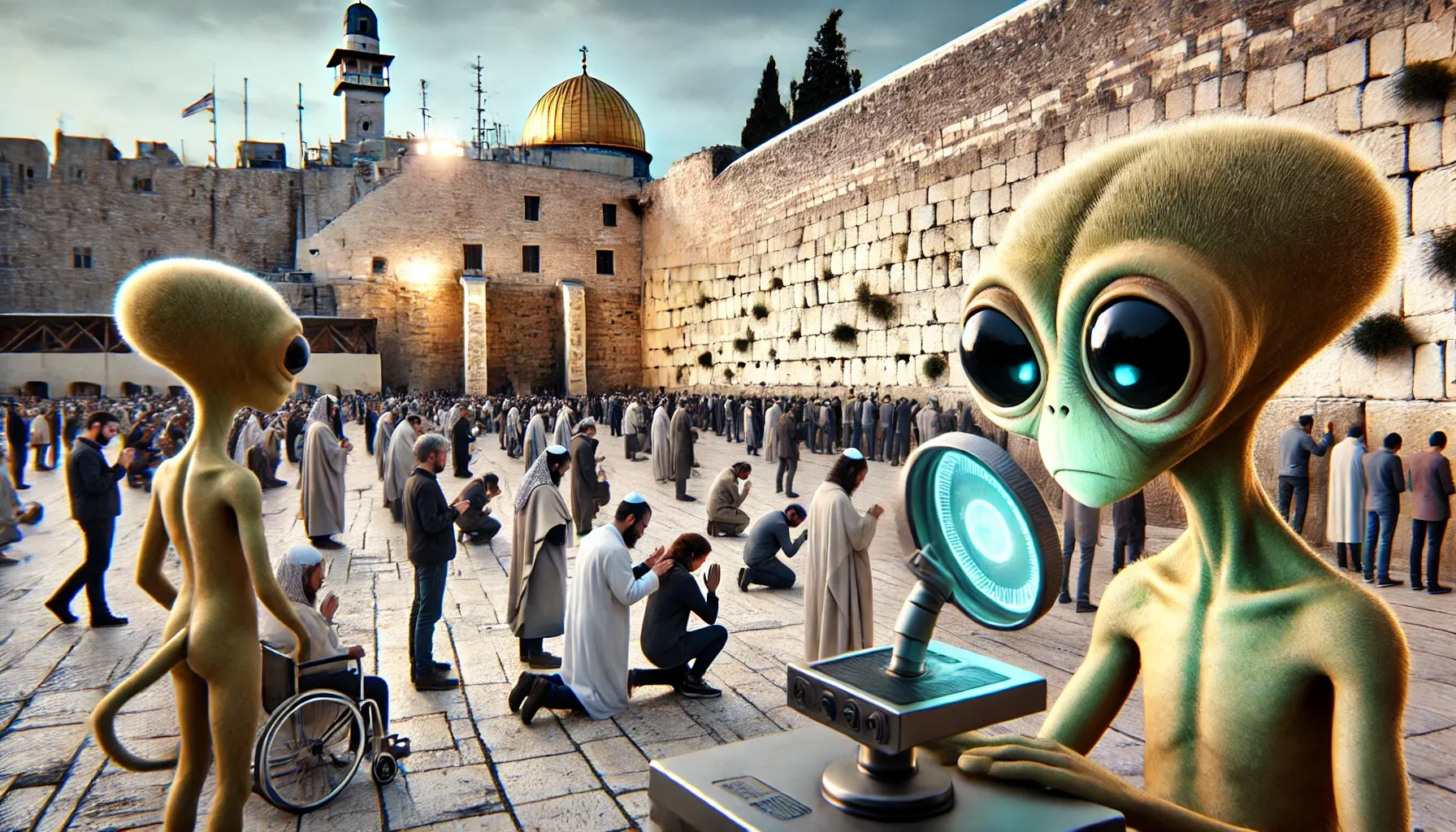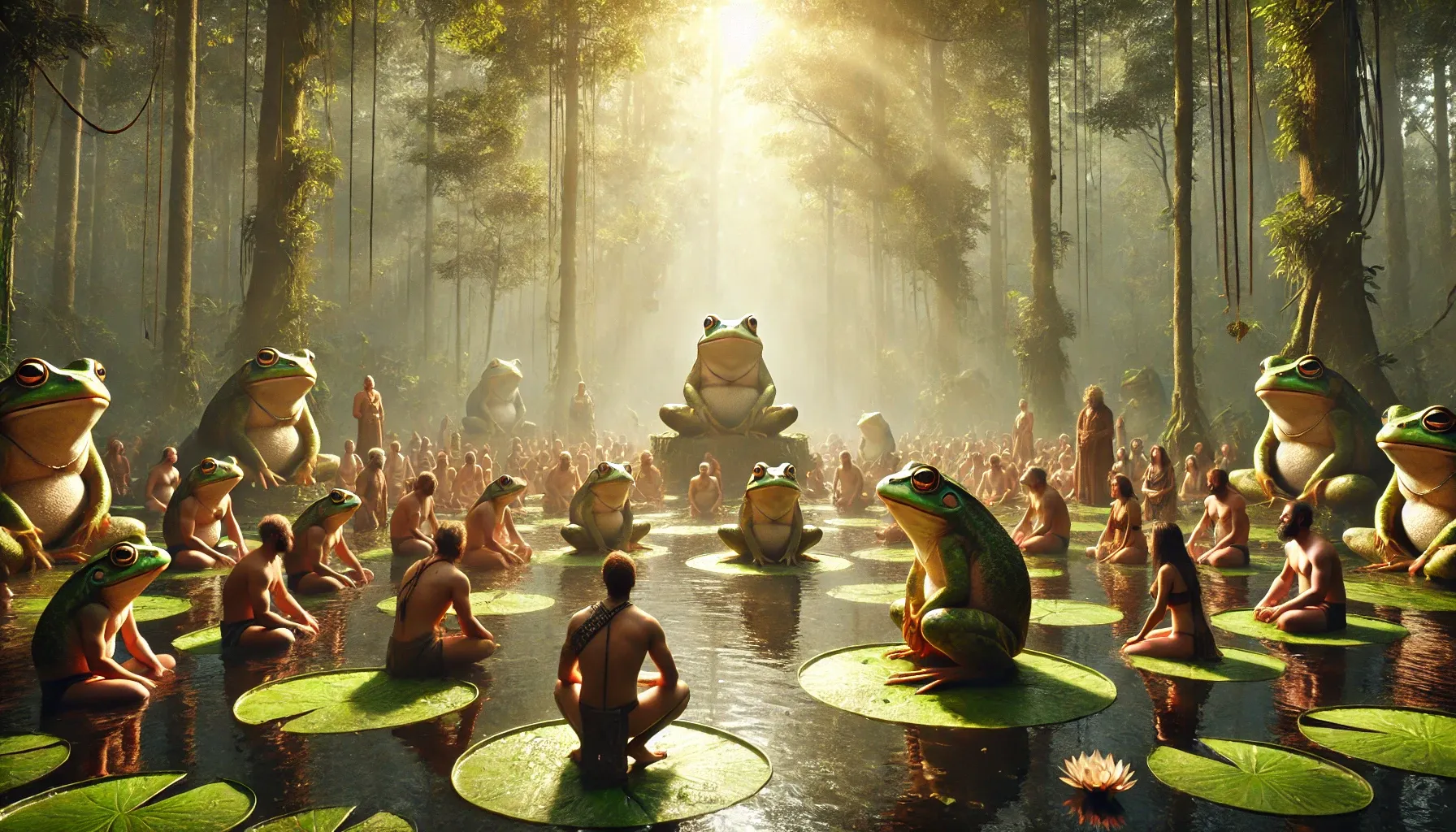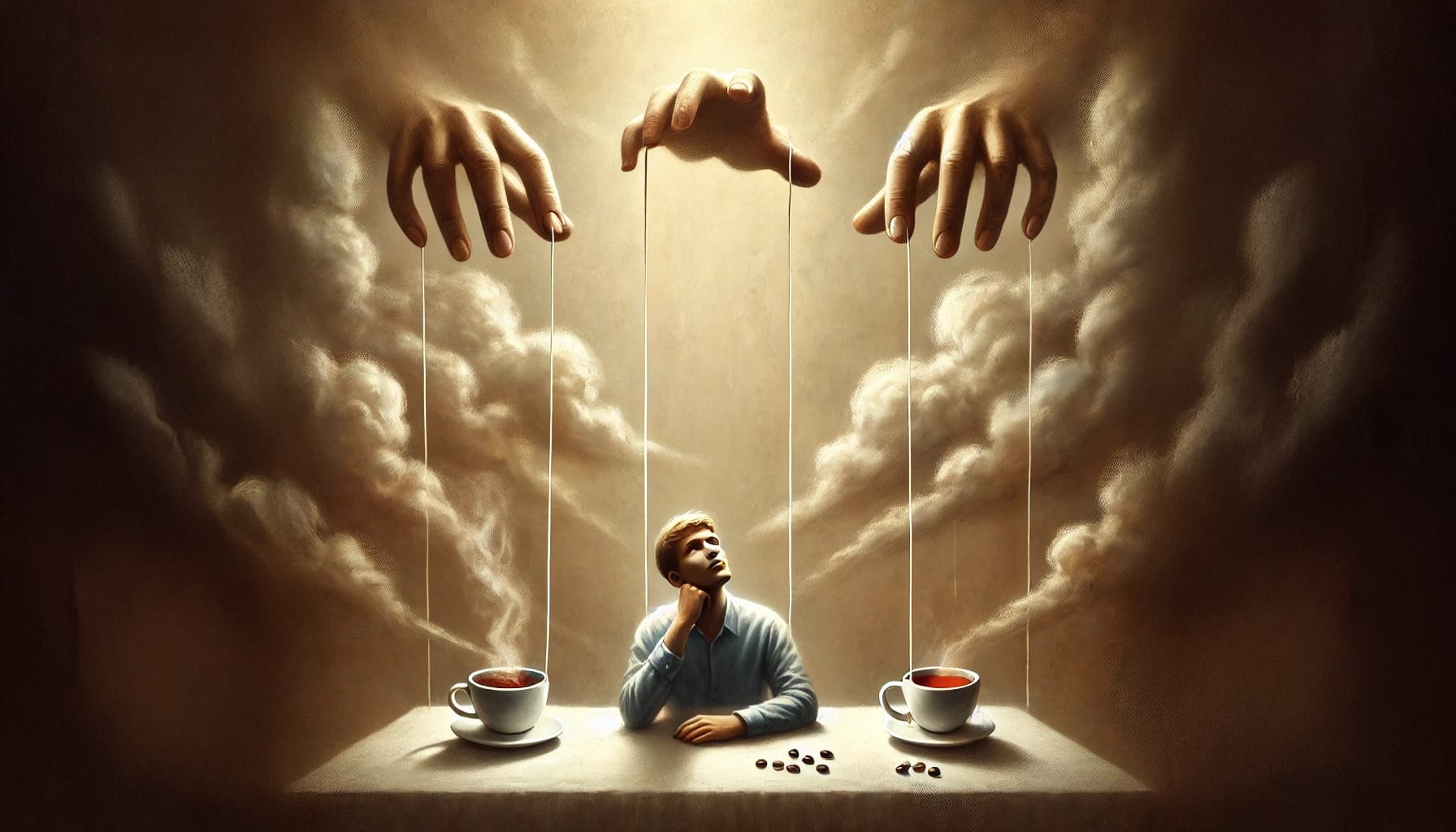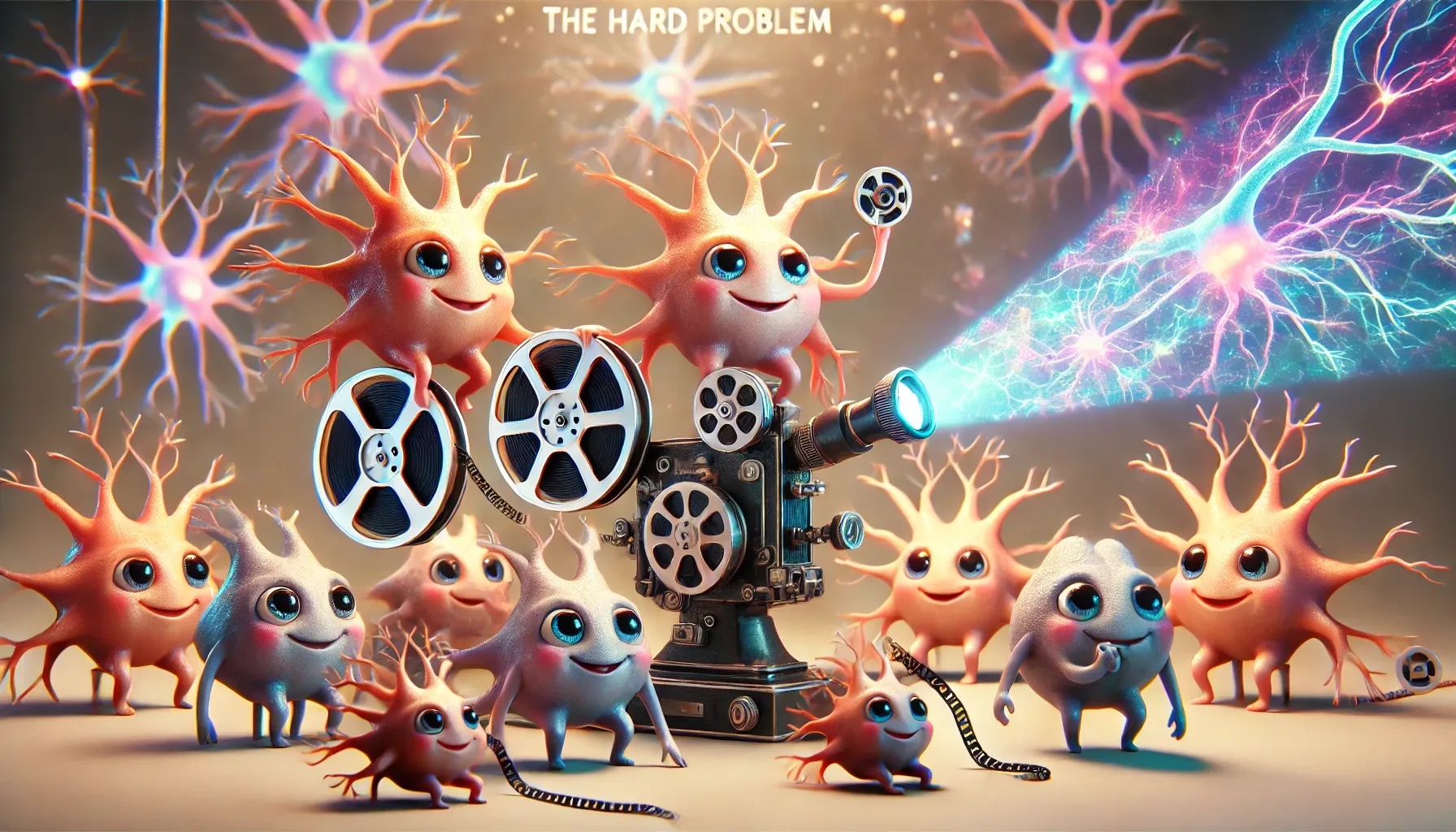A Skeptic’s Guide to Meaning
A skeptic’s journey through religion, existentialism, and determinism.

Yes, I’m going to be that guy who starts a blog to share his thoughts on the meaning of life. And because I consider myself a skeptic, we won’t be relying on religion, supernatural beliefs, or philosophical dogma. But we’re not going to throw our hands up, either. We’re just going to keep splashing around until we find something true enough to hold on to.
A quick note on my new blog
Before we get started, this is my first post using Ghost, my new publishing platform. It’s also my first public post, and the debut of my new website, rockysmith.com! 🙌
Since 2020, I’ve written 104 posts through my private Substack newsletter, which was just for friends and family. I decided to try Ghost because it allows me to have a private newsletter (for most of my writing) AND a public blog/newsletter (for less personal stuff). We’ll see how it goes!
As an aside, I also share Casey Newton’s concerns about the direction Substack is going. I’ve always found their laissez-faire approach to content moderation to be misguided, and now that they recommend content on their platform, there’s a case to be made that they’re helping amplify hate. This is a topic for another post, but I’ll just say that free speech absolutism is a joke. Not all speech is free (insert a billion examples here), and the First Amendment definitely doesn’t mean that anyone with something to say gets a megaphone.
Anyway, let’s move on. Picks up megaphone.
The plan
Just so you know what you’re getting into, I’ll be writing this more like an essay than a personal narrative—with the one caveat that I don’t know how to write an essay. Either way, my plan is to start by making the case that religion is problematic and not an honest source for answers when seeking truth over comfort. I don’t want to offend anyone, so feel free to skip that section if that doesn’t sound enjoyable.
Next, I’ll acknowledge that science alone doesn’t have all the answers either, and so we’ll turn toward philosophy. We’ll start with my personal favorite—existentialism—and I’ll share the principles that guided me there.
We’ll then poke some holes in existentialism’s precious notion of free will, and then attempt to reconcile it all with pragmatism.
Finally, at the very end, I’ll offer my humble answer to “What is the meaning of life?”
Of course, this is all just from my limited perspective, so I’d love to hear what others think! You can comment on this public post on rockysmith.com or—if you are receiving this by email—you can simply reply to the email to share your thoughts privately. If you’re not receiving this by email, but you’d like to, you can subscribe here.
Let’s get started!
Why we’re not turning to religion for an answer
If you’re searching for the meaning of life, most faiths offer more or less the same answer:
The meaning of life is to align oneself with the divine or moral order, uphold righteous principles, and ultimately attain salvation or spiritual liberation.
Easy, right? Our work here is done! 🙌
Not so fast. Instead of taking this answer at face value—as convenient and comforting as it might be—we’re going to take a few steps back, ask a few hard questions, and do our best to think critically. We’re going to pretend that we’re cute bug-eyed alien scientists, genuinely interested in understanding human behavior.

A good starting point is to wonder why this near-universal pattern emerged across all religions. We see it in spin-off traditions like Judaism, Christianity, and Islam, but also in mostly independent belief systems developed by ancient civilizations and island cultures. For an explanation, we probably have to go back some 70,000 years to the cognitive revolution, when we first demonstrated our capacity for symbolic thought. This is our ability to use words, images, and abstract signs to represent ideas or objects not physically present—a truly unique human trait. As language and imagination evolved, we invented gods, spirits, and magic to explain natural phenomena like fire, weather, and the stars. Long before science and critical inquiry, myths were our most powerful tool for making sense of the world.
It’s even easier to see religious narratives as myths when historical evidence shows that many of their stories and concepts were borrowed from earlier or neighboring traditions. For instance, the biblical account of Noah’s Ark closely parallels the Mesopotamian Epic of Gilgamesh, which also features a divinely prompted flood and a sole surviving family. These similarities show that the stories drew on existing myths and legends, reworking them within a new religious context.
Viewing religion as a distinctly human creation makes even more sense when you consider its deeper function: it helps us grapple with mortality and the unknown. By promising cosmic justice or an eternal afterlife, religion soothes our anxieties about suffering and death. Socially, it also helps instill shared values and bind communities together.
It’s hard to argue that these things are bad—but it’s easy to argue that it’s not honest.
Ultimately, from the moment we began using tools and forming abstract thoughts, we started inventing myths. It was our way of taming the chaos around us and finding solace in what otherwise might have felt like an indifferent universe—a truly terrifying thought!
But what if one of those religions—pick your favorite—turns out to be more than just a myth? Considering around 80% of people identify with a religion, shouldn’t we at least remain open to that possibility?
I’m not expecting to change any minds here, but I’ll briefly share my perspective before we move on.
Many religions make specific, testable claims about the natural world. For example, the Bible’s literal account of a six-day creation just a few thousand years ago conflicts with overwhelming scientific evidence that the Earth is about 4.5 billion years old. Time and again, historical and natural details in these scriptures turn out to be demonstrably false, undermining the notion that they are inerrant or divinely inspired. When a belief system mixes spiritual promises with literal claims that conflict with established evidence, it casts doubt on the whole thing. If parts of a text considered the Word of God are factually incorrect, why trust the rest?
And if you’re forced to pick between science and religion, just remember that science offers verifiable predictive power—like how astronomers used mathematics to predict Neptune’s existence long before it was directly observed. Meanwhile, some religious believers interpret biblical references to “the ends of the earth” or “the four corners of the earth” to mean that Earth is literally flat. As crazy as that sounds, in all fairness, it’s a very reasonable interpretation considering that’s what ancient Israelites actually believed at the time. Greek thinkers like Aristotle deduced Earth’s spherical shape by observing its curved shadow on the Moon, but those insights, unfortunately, arrived a few centuries too late. On the upside, we—the alien scientists—now get to observe Flat Earthers, some three thousand years later, with great fascination.
Even if we set aside the question of factual accuracy, there’s a far more troubling concern: a literal reading of many religious texts compels its followers to accept moral directives that are abhorrent, unjust, and indefensible. In the Bible, for instance, the following ideas are presented as divine commands that came directly from God:
- Subservience of Women: The Bible contains many passages that explicitly subordinate women to men. Genesis 3:16 declares “thy desire shall be to thy husband, and he shall rule over thee,” a hierarchical tone reinforced by Ephesians 5:22–24 (“wives, submit yourselves unto your own husbands”). Meanwhile, Exodus 21:7 (“if a man sell his daughter to be a maidservant…”) describes a situation in which a father can sell his daughter.
- Rationalizing Slavery: Ephesians 6:5 instructs slaves to obey their masters “with respect and fear,” 1 Peter 2:18 directs slaves to submit “with all respect” even to harsh owners, and Colossians 3:22 repeats the call for slaves to obey “in all things,” normalizing the institution of slavery.
- Condemnation of Homosexuality: Leviticus 20:13 labels homosexuality an “abomination” punishable by death, Romans 1:26–27 refers to same-sex relations as “dishonorable passions,” and 1 Corinthians 6:9–10 warns that “men who practice homosexuality” will not inherit God’s kingdom.
Of course, the Bible also contains messages of love and compassion. However, unless you’re prepared to accept all its teachings in full, your only option is to treat any factually inaccurate or morally troubling passages as figurative or open to interpretation. But if that’s the route you take, you can’t cherry-pick which parts of scripture you believe to be the Word of God and which parts are hyperbole—you can’t have it both ways.
Figurative or not, for thousands of years biblical values have profoundly shaped laws and cultural attitudes in many societies, often serving to rationalize human rights abuses. In some regions today, religion is used to justify forced or child marriages, female genital mutilation, severe restrictions on women’s education, forced labor, ethno-religious persecution, caste systems, and even the death penalty for homosexuals. And that’s to say nothing of how religious dogma has been exploited throughout history by kings, governments, and other authorities to legitimize power, silence dissent, and fuel wars and genocides.
Many Islamic terrorists, who kill and die in the name of Allah, believe they’re securing entry into Paradise, where they’ll be greeted by seventy-two beautiful virgins. Any guess as to whether this idea originated from a man or a woman? Even if most of us agree it’s likely just the fantasies of 7th-century Arabian men, that doesn’t change the fact that extremist recruiters use this alluring depiction of Paradise to radicalize young men—like the 9/11 hijackers.
I know this is heavy, and I know that this is a complicated and sensitive topic to casually breeze through. But remember, we’re just humble alien scientists looking for answers.
Let’s now consider another possibility.
Suppose you’re comfortable rejecting rigid doctrines. Perhaps you even agree that religious dogma is untrue, morally problematic, and practically dangerous. Maybe, instead, you favor a more nebulous notion of God and spirituality—your own unique belief system that isn’t testable or easy to pin down. Perhaps it’s loosely based on the Christian Bible, but everything is interpreted metaphorically. It’s just about faith and what feels right to you.
While this approach sidesteps many of the issues outlined above with organized religion—and is, by definition, impossible to disprove—I’d simply ask why your particular variant of faith is most likely influenced by the religious and spiritual ideas you’ve encountered throughout your life? If you were raised in the West, you might imagine the Messiah as a bearded European man. But why not a deity with an elephant’s head, like Ganesha? Do you think that image, your values, or your understanding of the afterlife would be any different had you grown up in India? And why didn’t you settle on a completely different belief system—say, one where frogs created humans and are silently judging us until Frog Day, where all the sinners turn into flies? What makes your faith any more meaningful or likely to be true than that one?

While no one can outright disprove a vague, unfalsifiable belief system, that doesn’t make it any less arbitrary. Even if it were true, it wouldn’t be any more likely to be correct than any other conceivable explanation of our existence—putting its probability near zero.
And that’s the problem with faith, isn’t it? If you can’t explain why you believe in something, how can you reject any of the infinite other possibilities?
A more intellectually honest take is that books like the Bible are simply collections of mythological stories—reflecting the patriarchal and oppressive norms of their time—passed down orally among ancient Israelites for centuries before being codified as holy scripture.
Do these books contain wisdom and valuable insights? Of course! But so does Harry Potter.
If you want to slap a label on me, I’d say I’m an agnostic atheist — someone who does not hold a belief in any gods, while also accepting that their existence or nonexistence is ultimately unknowable.
I’ve always found the atheist label to be strange. As if, upon accepting it, the burden is now on me to disprove all the fantastical beliefs that billions of people inherited through generational indoctrination and perpetuate as a matter of blind faith. The burden, in my view, ought to point the other direction.
That’s why I like this quote from the philosopher Sam Harris in his book, Letter to a Christian Nation:
“In fact, ‘atheism’ is a term that should not even exist. No one ever needs to identify himself as a ‘non-astrologer’ or a ‘non-alchemist.’ We do not have words for people who doubt that Elvis is still alive or that aliens have traversed the galaxy only to molest ranchers and their cattle. Atheism is nothing more than the noises reasonable people make in the presence of unjustified religious beliefs.”
So no, religion doesn’t make the cut. Strict religious beliefs collapse under scrutiny and have long been used to justify cruel, oppressive practices. In addition, untestable, vague belief systems are extremely arbitrary, rooted in myths and storytelling, and therefore highly improbable. And that’s why we’re not turning to theism or supernatural thinking for answers. Instead, we’ll push through the discomfort—with clear eyes and humility—and confront that truly terrifying thought that the universe is indifferent and that, when we die, it’s simply over.
The good news is that there are philosophies out there more firmly rooted in reality. Guided by reason, physics, and first-order principles, we’ll search for a more plausible answer to our question.
So where should we be looking?
You might think that I’m going to claim that science has all the answers, but it’s obviously not that simple. Science does guide our understanding of the observable universe and shapes how we think, but it has limits when it comes to meaning and purpose. It can often describe what happens and how—but it struggles with the deeper why. Why did the Big Bang occur? Why is there something rather than nothing? Why did consciousness arise? These are questions we cannot yet—and may never—answer through science alone.
This is where philosophical frameworks come into play. They build on scientific insights while probing beyond the empirical to explore the possibility of a broader purpose or direction for our lives.
There are many philosophical frameworks out there, but I’ll narrow my focus with four guiding principles:
- Reason & Evidence-Based Thinking: Ideas must be logically coherent and grounded in verifiable data.
- Skepticism & Intellectual Humility: We should question claims, remain open to changing our views, and avoid rigid dogma.
- The Copernican Principle: Recognize that humans aren’t cosmically central or “chosen,” keeping our perspective in check.
- Resistance to “Easy Answers”: Dismiss comforting, unfounded explanations to life’s big questions, staying open to complexity and nuance.
Even if you share these principles, you might still favor a different philosophy. For me, though, existentialism is a strong starting point because it directly confronts the universe’s indifference, demands honesty over comforting illusions, and rejects moral absolutes and supernatural claims.
Existentialism
Existentialism explores what it means to be a self-aware individual in a universe with no preordained moral laws or transcendent purpose. With no cosmic script dictating our path, we are, as Jean-Paul Sartre wrote, “condemned to be free”—fully responsible for our choices and their consequences. This realization can provoke an unsettling sense of angst or dread, the feeling that no higher power will guide or absolve us.

But rather than slipping into nihilism—which claims that no meaning exists at all—existentialism sees this stark freedom as an invitation to craft a life worth living. If no external meaning is handed down, we’re free to create our own—whether through personal passions, deep relationships, or creative endeavors. Living authentically means refusing to let an indifferent universe undermine our capacity for love, curiosity, and self-expression.
In short, existentialism recognizes that the absence of cosmic dictates is both a burden and a gift. There’s no divine safety net, but there’s also no ceiling on what we can create or cherish. For better or worse, we are the architects of our lives—and in a universe that doesn’t care, our freedom to care becomes all the more profound.
Determinism
It feels like we’re getting close. The universe may be indifferent, but existentialism tells us that we can create our own meaning, and that exercising our freedom in service of our values may be the closest thing we have to purpose.
But what if this freedom—our very sense of free will—is just an illusion?
Thinkers like Sam Harris, who I mentioned earlier, argue that, from a mechanistic viewpoint, every decision can be traced back to earlier causes—genes, upbringing, or even random neural fluctuations—all before our conscious mind can take credit for the “decision.” We’re like children turning a toy wheel in the backseat, convinced we’re steering the car when we’re really just along for the ride. This isn’t a huge leap if we accept there’s no disembodied soul calling the shots—instead, everything we do is simply the expected output of an impossibly complex biological machine floating in our heads. Free will is therefore not an objective reality, but an experiential phenomenon.
Or as Harris likes to say:
“You can do what you decide to do—but you cannot decide what you will decide to do.”

Though it may feel disorienting, this deterministic view doesn’t undermine moral responsibility; it just reframes it. The common objection—“If we have no free will, we can’t hold people responsible”—is more an emotional worry than a logical one. After all, we don’t invoke free will when we restrict dangerous animals for the safety of others; we simply acknowledge they pose a threat and act accordingly. Recognizing people as body/brain mechanisms shaped by prior causes can have a similar effect. Rather than condemning wrongdoers as innately “evil,” we might see them more like aggressive animals—destructive forces to be dealt with, not hated. This outlook fosters compassion and humility—reminding us that we also didn’t choose the traits or circumstances that fuel our successes. In the end, determinism neither erases accountability nor excuses harm; it merely places responsibility in a broader causal context that encourages empathy over moral scapegoating.
To make this point, Harris described the tragic case of Charles Whitman in his book, Free Will. On August 1, 1966, Whitman murdered his mother and wife, then climbed a tower at the University of Texas and shot dozens of people, killing 14 and wounding many more. In a suicide note, Whitman described suffering from violent urges and debilitating headaches, and requested an autopsy on his brain. Doctors later discovered a large tumor pressing on his amygdala—a region tied to emotion and impulse control. Understanding this makes us see Whitman as—at least in part—a victim of his own biology rather than a monstrous villain who made bad life choices or was influenced by evil spirits. It’s an extreme but illuminating reminder that everything we do hinges on the state of a physical organ that is subject to injury, chemistry, and chance.
In our day-to-day lives, however, a sense of autonomy feels undeniable. We plan, deliberate, and hold each other accountable. This paradox can be viewed as an emergent layer of reality: at a deep, causal level, everything is shaped by prior causes, but on the macro level, we still experience genuine freedom. Acknowledging that free will might be an illusion in the strictest sense doesn’t necessarily rob us of its practical importance—it simply highlights the mystery of how subjective experience arises from hidden neural processes.
This is often referred to as the “hard problem of consciousness,” underscoring a deep explanatory gap between the objective mechanisms of neural processing—what some label the “easy” part—and the subjective qualities of experience—the “hard” part. Even if we could map every neuron involved in perception, it wouldn’t fully explain why there is something it feels like to perceive.

Building on this idea, Sara Walker, a theoretical physicist studying the origins of life and complexity, suggests that the universe’s smallest building blocks may obey random or probabilistic laws, but once you reach a certain threshold of complexity—like a functioning brain—emergent higher-level principles come into play. The underlying physics doesn’t vanish; it’s just woven into a new tapestry of goals, behaviors, and shared rules. On the microscopic level, you might explain every neuron’s flicker, but that doesn’t fully capture why I decided to write this essay or why I decided to watch Ronny Chieng’s new Netflix special last night.
Sara Walker, a physicist and astrobiologist, discussed free will, the origin of life, and other mind-melting topics on the Lex Fridman podcast on June 13, 2024. She is the author of Life as No One Knows It: The Physics of Life’s Emergence.
Nathan Hohipuha—author of Absurd Being—is even more critical of Harris’s strong determinism in Freewill - Brain Tumours all the Way Down.
“You aren’t responsible for your thoughts or actions. You aren’t in complete control over your thoughts and personality. Who is the you in these sentences? It can only be referring to a mythical Cartesian Mind or homunculus. If we agree that talk of these ideas is misguided (as I do), then these determinist analyses of what is going on in consciousness or the brain are all meaningless. If you want to transcend Cartesian ways of thinking, you can’t smuggle a Cartesian Mind in through the back door.”
Hohipuha contends that it’s misguided to say we have no freedom simply because material processes follow cause and effect; free will, in his view, applies only in the realm of consciousness rather than brute physical matter. Even major changes in the brain—whether from injury, tumors, or normal development—simply highlight how tightly our sense of self is woven into physical processes.
Descartes’s famous “I think, therefore I am” is more than just a cool tattoo idea, it reminds us that our ability to think is the one undeniable proof of our existence. But this fundamental truth points to a deeper mystery: how can intangible thoughts arise from purely physical processes in the brain? For materialists, it defies explanation.
This paradox should humble us before declaring free will an outright illusion. The fact that we didn’t choose our fundamental wiring doesn’t mean we have no say in how we use it; rather, it suggests there’s more nuance to human agency than any neat, causal explanation can fully account for. And if we can’t entirely pin down how subjective awareness arises, we probably shouldn’t issue absolute pronouncements on whether our choices are illusory or not.
Plus, even if free will is an illusion and life is just a movie with a fixed ending, we can either watch it with detachment or immerse ourselves and get lost in the plot. And before you argue that we can’t truly choose how to watch the movie—shhhh, I’m trying to enjoy the movie. 🤫
Pragmatism
Developed in the late 19th century by American philosophers, pragmatism holds that a belief’s truth is best judged by its practical consequences—how it helps us navigate real life. William James, a psychologist and philosopher, famously wrote:
“The ultimate test for us of what a truth means is the conduct it dictates or inspires.”
For questions where hard evidence is elusive—like the meaning of life or how to live well—this perspective suggests that if a belief promotes human flourishing, it’s worth holding onto. This isn’t a license to ignore science or indulge in fantasy; rather, pragmatism recognizes that strict proof can fail us on existential or moral matters. If positive illusions bolster resilience, creativity, and empathy without clashing with established facts, a pragmatist might consider them valid in a functional sense.
By focusing on real-world outcomes rather than abstract speculation, pragmatism embraces ideas that genuinely improve our lives. It stays grounded in what works, yet remains flexible enough to sustain hope and purpose.
Putting it all together
Let’s bring it home.
We began by questioning religious and dogmatic sources for life’s ultimate purpose, only to find that their supernatural claims often collapse under scrutiny—or at least remain arbitrary and improbable. We then confronted the discomfort of an indifferent universe head-on with existentialism, where we learned that no cosmic script dictates our path, leaving us fully responsible for our choices. Determinism challenged that idea of choice, proposing that our decisions may be shaped by prior causes, even if they feel genuine to us. Finally, pragmatism reminded us that even when objective certainty remains elusive, beliefs that foster resilience and well-being can be true enough to guide our lives.
Bottom line, if we accept that the universe provides no guidance, then meaning must be something we create rather than receive. We might discover it through creative expression, authentic relationships, intellectual pursuits, or contributing to our communities—but there’s no right or wrong answer. In fact, recognizing that no higher authority charts our path underscores the gravity of our freedom—real or perceived.
The same logic applies when defining the values we choose to live by. There may be no inherent principle of human rights, but if we value human flourishing and want to prevent suffering, then embracing human rights is undeniably sensible. If you accept that as a foundation—and I hope you do—there’s still plenty of room to decide what other values matter to you, whether that’s honesty, hard work, non-judgment, immaterialism, modesty, independence, or being a good listener—it’s up to you! Of course, our values can (and probably should) shift as we learn and grow, but living by solid principles—even when there’s nothing to hold you accountable—can be deeply meaningful for both you and others. It’s like a child doing the right thing even when they know their parents aren’t watching.
So, what do I think the meaning of life is? For me, the answer is:
The meaning of life is to find your own purpose, define your own values, and have the strength to live by them, even—and especially—when nobody is watching, nothing ultimately matters, and we can’t even be sure if our choices are truly our own.
If nothing else, we know we exist, we suspect that's special, and so there's no sense in squandering it. In fact, I’d argue the more interesting question isn’t what the meaning of life is—but rather, what do you plan to do with yours?
